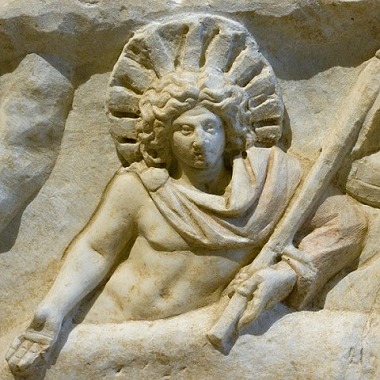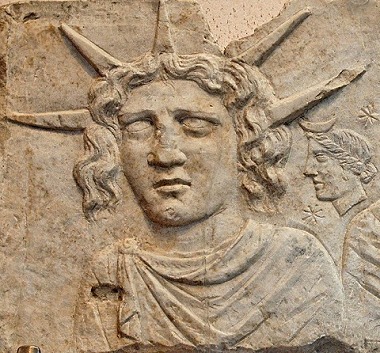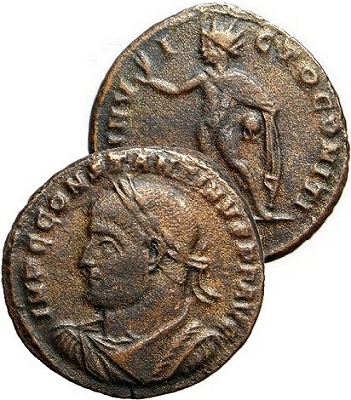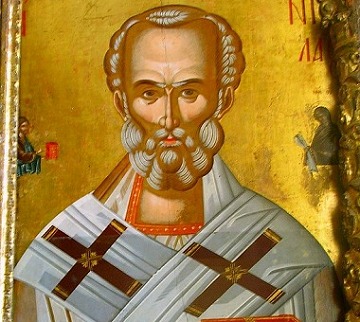 |
Resources from a Messianic perspective |
|
A MESSIANIC PERSPECTIVE ON CHRISTMAS Download a PDF version of this article
We live in a society today that values political correctness. It is a product of our modern emphasis on tolerance, which means all things must be accepted, regardless of whether we believe in them or not. Except it does seem that those who preach tolerance are not so tolerant when it comes to things of a biblical nature. There is the erosion of religious expression in public settings in our country. Steadily over the past century, we have seen previously accepted practices being deemed unacceptable and illegal, and as a result, they have either been eliminated or under attack. Things like prayer in schools and at graduations, and even the words "under God" in the pledge of allegiance. In the name of tolerance, we now have a multitude of winter music festivals. In addition it's no longer just Christmas Eve and Christmas and Hanukkah and New Year's Eve and Day, but now Human Rights Day on the 10th, Kwanzaa on the 26th, a humanist holiday called HumanLight on the 23rd, Festivus for all of the Seinfeld worshippers, Black Friday, Cyber Monday, and who knows what next year. The irony is that the holiday of Christmas, which for the longest time had the season to itself, actually originated because of tolerance long ago. It is a story that few people know, but has great implications for our lives today. The early church was formed within the confines of the Roman Empire. So the influence of the Roman pagan way of life was strong. Many nations worshipped a sun God, like the Babylonians who called him Mithra. According to Mithraic legend, their god was miraculously born on December 25th. He conquered the sun and gave it rays like a crown, and then they became one and the same. Mithra was the primary deity that was revered in Babylon. In other words, the people who took the kingdom of Judah captive beginning in 597 B.C. were sun god worshippers. 
Mithra
Centuries later, that land, along with many other nations that revered the sun god, became part of the Roman Empire. As evidenced by Mithraic temples in many cities, including fifty in Rome alone, belief in the sun god was the most popular cult in the empire and would be the chief rival to Christianity. In the year 274 A.D. the Emperor Aurelian united all of these beliefs and established as an official cult of Rome the veneration of Sol Invictus, "The Invincible Sun God." Since the sun god was worshipped under different names and in a variety of ways, Aurelian just unified them as one. As a way of establishing his legacy, he built a massive Temple of the Sun in Rome. At that time, the Julian calendar was used. And according to that manner of reckoning dates, the winter solstice took place on December 25. That date was important to worshippers of the sun god because it marked the" rebirth of the sun," or the day when the sun began returning to the sky for longer and longer periods each day. So December 25th became a day to recognize Sol Invictus in a ritual fashion. 
Sol Invictus
Meanwhile, church fathers were making moves of their own. Originally church leaders showed no interest in ascertaining the birth of Yeshua (Jesus). Initially they were all Jewish. And in the ancient Jewish culture, the date of your birth was insignificant and rarely recorded. It was the date of one's death that was considered significant and thus remembered. We see that reflected in the Gospels about the death of Yeshua, as we are told that it occurred at the time of Passover. He was crucified on the 14th day of Nisan on the Hebrew lunar calendar at the same time when the Passover lambs were being slaughtered in Jerusalem (Mat. 27:46) . It is only in ancient cultures that practiced astrology that we see an emphasis on birth dates. So as Gentiles became part of the body of Messiah, and brought with them their cultural heritage, the birth of Yeshua became a topic of interest. Some early church leaders like Tertullian and Hippolytus attempted to ascertain theSol Invictus birth date of Yeshua. They assumed that He had to have been conceived and also died on the exact same dates of the calendar. And the 14th of Nisan equated to March 25th on the Roman solar calendar according to those church leaders. Thus nine months after His conception would be December 25th in their way of thinking. So the assumption that Yeshua was born on December 25th was based on the belief that He had to be conceived and died on March 25th, even though there was nothing in the Bible to warrant such a conclusion. But of course making assumptions never seems to be a deterrent when it comes to things of a religious nature But this belief fit very nicely within the Roman culture. Not only was December 25th an existing special day on the calendar because of Sol Invictus, but another holiday took place a few days earlier called Saturnalia tha t was characterized by merrymaking and exchanging gifts. It became possible for the merging of all of these commemorations. Some writers have speculated that church leaders sought to suppress worship of the sun god by offering Jesus as an alternative object of worship. But we do not have any recorded evidence of such a strategy. It is equally likely that Roman society just welcomed the participation of Christians alongside sun god followers in parallel celebrations because it was an empire that esteemed tolerance of worship of all gods. Either way, the stage was set for merging the two traditions into one. The catalyst for bringing that occurrence about was the emperor Constantine. Initially he was a sun god follower. But later on during his rule, he professed being a Christian. However, evidence points to the fact that he practiced monolatry, meaning he recognized the validity of many gods but only worshipped one of them. But which one? Many of the coins minted in his name have the figure for Sol Invictus behind Constantine or on the reverse side, not Jesus. 
Constantine and Sol Invictus
In the year 321 A.D. he enacted the "Venerable Day of the Sun" edict that formally established Sunday as the day when businesses and government would rest and would be closed in the Roman Empire. That civil dictate set the stage for the later religious shift of worship among Christians from the seventh day of the week to the first day, by being formally ratified at the Council of Laodicea in 363 A.D. Four years after initiating the Venerable Day of the Sun, Constantine instigated a second major transformation. In 325 A.D. at the Council of Nicea, he pushed through an edict separating the commemoration of the resurrection of Yeshua from its previous association with Passover and established it permanently on the first Sunday after the spring equinox. This change of observance linked it both to a solar pattern and a day of the week that honored the sun god. So it was only natural with the day of the week of the Sabbath and the day of the Resurrection of Messiah formally being shifted to days associated with the sun, that the day of the birth of Messiah would also be associated with a day honoring the sun, in this case December 25th. While we cannot point to a formal edict that established such a switch, there were letters written by church leaders during the fourth century discussing a December 25th birth of Christ. They were using verses of Scripture like Malachi 4:2 with the phrase "the sun of righteousness" to draw comparisons to the theme of Sol Invictus. We also know that by the year 354 A.D., the date of December 25th was being identified on Roman calendars as Natalis Invictus, "Birth of the Invincible One," referring to Jesus. And by the time the fourth century ended, virtually all of the Christian world had adopted December 25th as the birthday of Yeshua. It seems that worshippers of the sun god had taken captive the people of the Bible once again. Soon, the sun god religions like Mithra that were once so prevalent ceased to exist. Instead, worship of the sun in the sky gave way to worship of the Son of God, Jesus. Yet vestiges of sun god worship lingered within the church. In the fourth century, iconography began appearing depicting Jesus with sun god attributes, most notably halos were placed around his head resembling the glow of the sun, and often they resembled rays of light emanating from the sun, just as it was done with Mithra. And, as we now know, the celebration of the birth of Jesus still takes place on December 25th, the same day as Sol Invictus.
The word Christmas is Roman Catholic in origin, literally meaning the "Mass of Christ." A mass is a liturgical service centered around the sacrament of the Eucharist, which according to Catholic teaching, is a re-enactment of the sacrifice of Jesus. Over time, the meaning of the word has evolved so that most people don't make an association with the mass and the holiday, but it still remains in the background. A central character of the modern celebration of Christmas also has a historical background with a mixture of fact and fiction. There was a real Saint Nicholas who gave inspiration to the legendary Santa Claus. In the fourth century, Nicholas was the bishop of Myra on the southern coast of modern-day Turkey. He was known for giving gifts secretly, which fit in nicely as the symbolic figure for incorporating into the church Saturnalia, the gift-giving festival of the Romans. Over time, according to popular thinking, he just moved further north, grew his beard longer, put on a few pounds and hired a crew of little people do work for him. 
Saint Nicholas
But here is the part that not many people know about Nicholas. In 325 A.D. he received an invitation from Constantine and was one of the 318 Church bishops (none of whom were Jewish) who convened in Nicea, which also happened to be in present-day Turkey. So he was one of the leaders who established the edict to change the way the Resurrection was commemorated. That was not a good gift that Nicholas left for the Church because it infused a tradition of ignorance within Christianity about the Jewish heritage of the faith and planted a seed of opposition and rejection of God's promises to the Jewish people. Now if we redirect our focus to modern times, in some ways, Christmas actually stimulates the practice of Jewish customs in a reactionary way. Hanukkah would not be nearly as popular as it is today in the Jewish community without the desire to match the popular excitement that Christmas brings. In other ways, Christmas suppresses the Jewish culture. Some Jewish-Gentile blended families try to make compromises like decorating a "Hanukkah bush" in the home. Interestingly, over 100 years ago, Theodor Herzl, a prominent Jew who was the father of Zionism, actually did that at his home in Vienna. Today, surveys have shown, depending on the community, anywhere between 10-25% of Jewish families have a Christmas tree in their homes. So especially families with intermarried spouses struggle with deciding what to do about Christmas. In the Messianic community, there is no shortage of opinions regarding the holiday. Most Messianic congregations do not have services that resemble what you have in churches (likewise, the vast majority of churches have nothing to do with Hanukkah in spite of Yeshua's example in John 10). The reason for the Messianic de-emphasis on Christmas is not so much following the traditions of the general Jewish community, but more of a return to the way that worship was done in the days of Yeshua. To put it another way, it is a leap over the Roman practices like Christmas and Easter back to the biblical practices based on the feasts in Scripture. With this background in mind, then, what ought our response be? Three biblical principles are especially relevant. God does not share His glory with anyone or anything Isaiah chapter 42 speaks directly to the issue. Unequivocally we are told: "I am YHWH, that is My name; I will not give My glory to another, nor My praise to graven images" (Is. 42:8). The Lord knows that He is the only one worthy of worship. He shouldn't have to share His glory with anyone or anything else that people create. We have to give Him His due. But, sadly, that is not always the case. Certainly God is not pleased with the way the holiday of Christmas has ended up. His glory now gets shared with many trivial things. It is easy to see that, for the most part today, Christmas has become polluted by legends and materialism, so that it doesn't even resemble Sol Invictus with its focus on deity. Nicholas may have been a true saint who lived long ago. But Santa Claus is no saint who brings glory to God, nor reindeer and elves and angels getting their wings in the movie "A Wonderful Life." But it is a holiday for many people that gives that warm comfortable feeling, with lights and color and things to see and tasty food. What other time in your life can you haul a big tree into your house and your family will say, "That's a good idea." It has become a fundamental part of our American culture. For some people it mainly means getting presents. In a capitalistic society such as ours, it is understandable that we have ended up with this emphasis on buying things and giving them as gifts. All we have to do is to ask what would happen to our economy if we suddenly took a time out on Christmas. That would be truly catastrophic economically. Unfortunately, Christmas has become a day in which the glory of the true and living God is being intermingled with many things that do not deserve it. Isaiah could easily be describing our day, when he refers to the people of the nations as being blind and prisoners in the dungeon (Is. 42:7). We don't know the truth. And we are stuck in a place that is holding us captive. The question becomes, what can we about it? God allows expressions of worship that are not commanded in Scripture In the New Testament, we see a number of holy day elements that do not have direct mandates from God. Consider these examples:
The key to understanding God’s acceptance of these worship practices is this—even though they lacked specific biblical commandments, they were all consistent with the greater context of God’s instructions in Scripture. Christmas is clearly not a holiday commanded by God. But is Christmas consistent with the greater context of God's Word? An argument is made that it can be consistent by making it a time of proclaiming the coming of the coming of Messiah without the trappings of myth and materialism. It seems reasonable, then, for critics of Christmas to keep in mind Paul's admonition to respect the way that others worship:
On the other hand, Christmas largely is not an exclusive time for testimony. It is more common for it to be a time of compromise and misdirected focus. There is a strong sense of desensitization when it comes to the holiday. It has become so familiar and treasured by people that criticism about its origin and background tends to be ignored. Like Isaiah observes, "Their ears are open, but none hears" (Is. 42:20). But is it wise for people to ignore its past and the way it is observed in the present? Is it good enough that you can make the holiday whatever you want it to be, thus blurring the lines between that which is biblical and that which is pagan? There must be a better way. God has called His people to holy and be a light to the nations Down through the generations, godly people have been confronted and tempted by cultural compromise. It threatens God's calling for people to "be holy, for I am holy" (Lev 11:45). The Hebrew word for being holy (kadash), literally means "to be separate." It has the sense of a distinction between that which relates to God's purity and perfection, and things that are common, profane and evil. Something is unholy when that distinction is broken. When we consider the origin and the way that Christmas is perceived today, there is clearly a lack of holiness or separation from the profane. No matter how much of "the real meaning of Christmas" is extolled, it is easily overwhelmed by the ungodly aspects of the holiday, oftentimes without being noticed. So the holiday is susceptible to blending together many things that do not bring glory to God, thus casting a shadow of darkness on the day. God spoke through the prophet Isaiah, saying, "I will also make You a light of the nations so that My salvation may reach to the end of the earth" (Is. 49:6). It's all about God's way of salvation being proclaimed. The phrase, "My salvation" in Hebrew is yeshuati. It is a declaration that foreshadowed God's salvation literally coming through the person of Yeshua. So the light that is being shined into the darkness is Yeshua. And for the sake of the people of this world, that means we need a brighter focus on Him. We need to shine the light of Yeshua into the darkness of ignorance and ungodliness. The Messianic perspective is one that places a high value on an accurate understanding of history and upholding God's holiness. It means having the courage to live faithfully to God's instructions in Scripture, without being misdirected by the traditions of men. When it comes to being a light to the nations about the coming of Messiah, there is an abundance of evidence in God's Word that points toward Sukkot—the Feast of Tabernacles as being the actual time of year when Yeshua was born. The case is very strong. So it makes sense that if we are to honor the event of Messiah's birth, we should do so on the right date. By promoting the biblical holiday of Sukkot as a commemoration of the coming of Messiah and His dwelling with humanity, we can start anew, with a focus on the Good News and what God has done for us, without the clutter of the myths and cultural distractions of Christmas. It means more light, not just less darkness. This better way of being a light to the nations is dedicated the importance of God's holiness and telling others that Yeshua is the only way of salvation. May God give us wisdom how we might do that in our ways of worship and the holidays we observe, so that they might bring Him all of the glory that is due Him alone.
Dr. Galen Peterson |